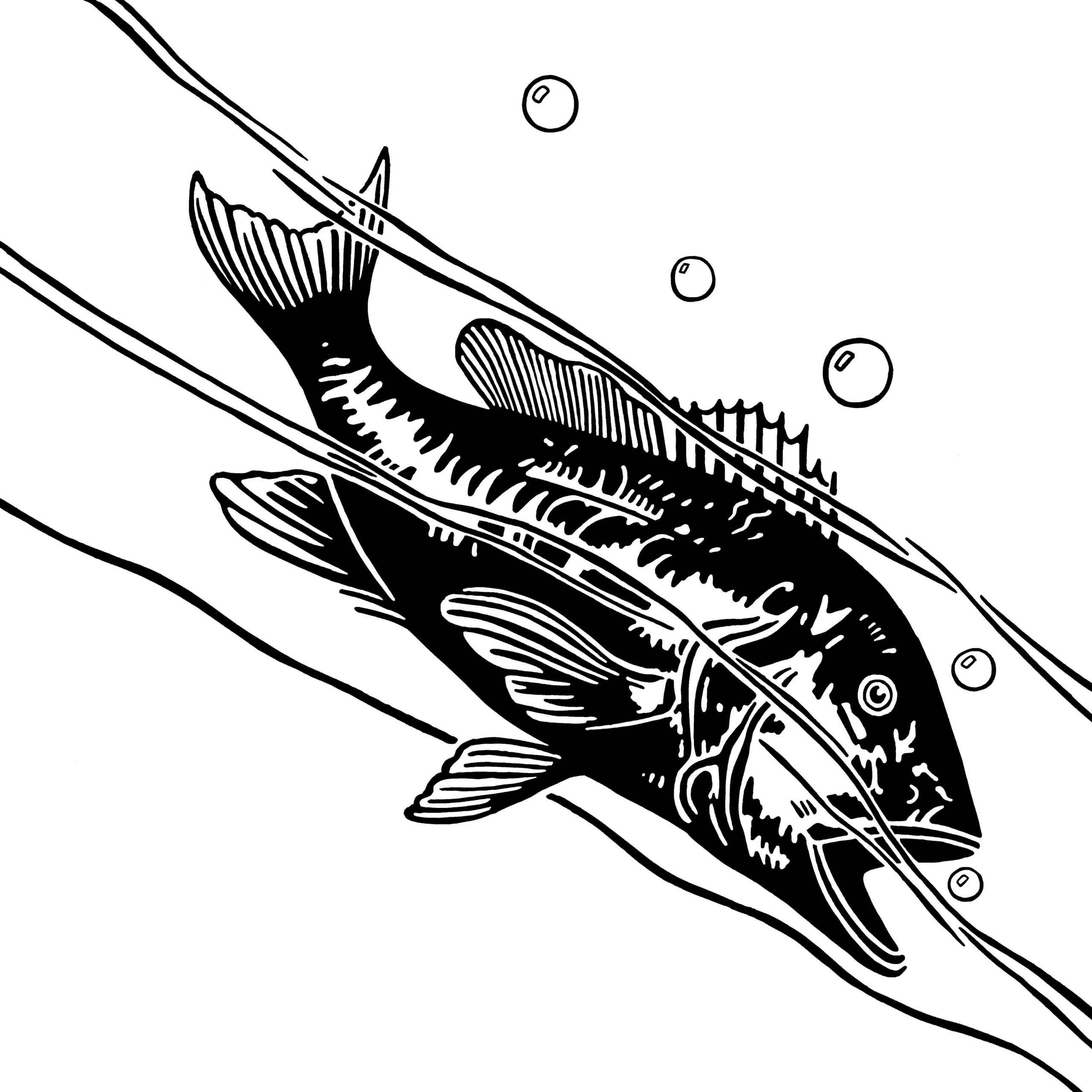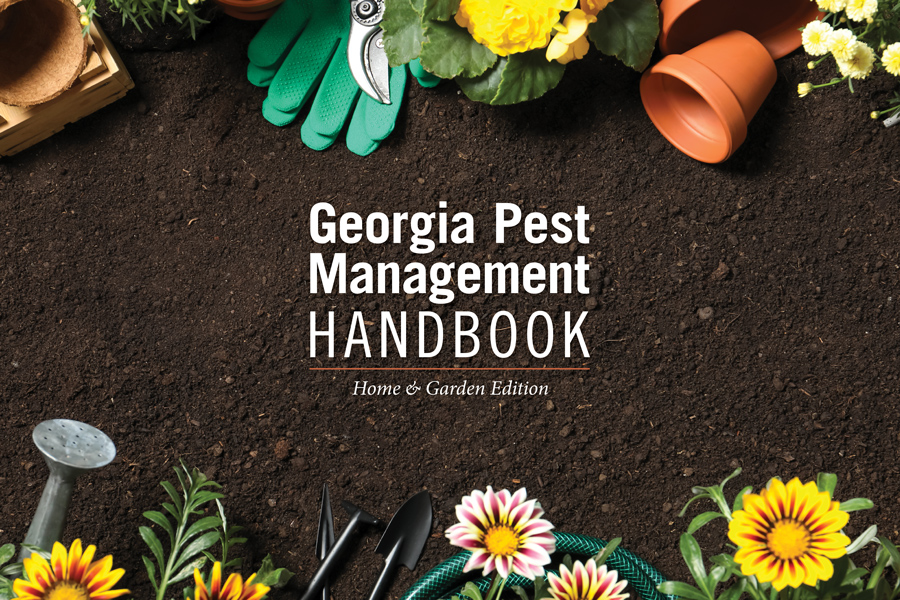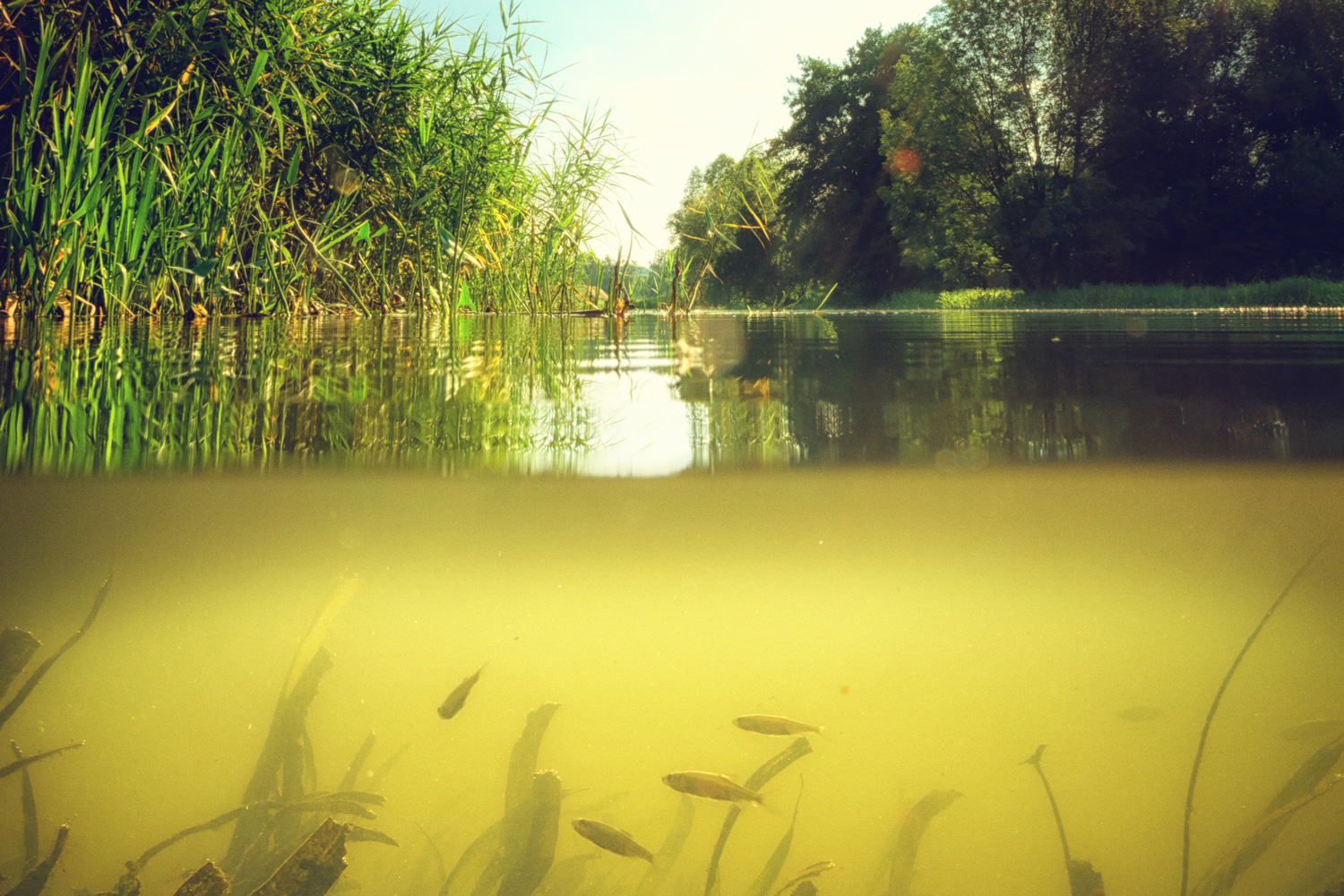Aquaculture
-

C 1048
Oxygen Depletion in Ponds
Fish ponds may experience a loss of oxygen at any time of the year, depending on the weather and amount of nutrient enrichment the pond has received; however, most oxygen depletions occur in warm weather and usually follow a period of cloudy, overcast conditions. Low oxygen concentration in pond water means stress and possibly death for the pond fish. When fish die from low oxygen, there can be serious financial consequences for commercial fish operations; for example, largemouth bass, bream and grass carp can be worth more than $3,000.00 per acre. Therefore, pond owners should consider a plan to provide aeration for their ponds before oxygen depletions occur.
Gary J. Burtle
|
-

Chemicals are applied to ponds and lakes to control aquatic weeds, to eliminate undesirable fish, to control undesirable insects and aquatic vertebrates, and to correct undesirable water quality problems. Pond owners are often confused by terminology, units of measure, and formulations. This publication explains how to safely and effectively use chemicals for pond management.
Gary J. Burtle and Jay Shelton
|
-

Proper fertilization and liming help maximize fish production in ponds. This publication describes how to effectively fertilize and apply lime to a pond for optimum fish production.
Gary J. Burtle
|
-

Properly managed ponds supply an abundance of fish for recreation and nutrition. Stocking methods and catch rates are used to keep pond balance. Liming and fertilization recommendations for ponds in Georgia are important when planning fish harvest goals. A variety of fish species for pond stocking are discussed in this publication. Methods to improve pond balance, including fish population renovation, are also presented for consideration as part of a management plan.
This publication is primarily for Cooperative Extension Agents and fish pond owners and was written in an effort to consolidate currently accepted pond management methods.
Gary J. Burtle
|
-

Certain algae can cause serious problems when they become very abundant in drought, hot weather, unusual rainfall patterns, or after nutrient accumulation in pond water. Fortunately, most ponds do not experience toxin problems or dense algal blooms. Watching for the warning signs that lead to toxic algal bloom development is the best way to prevent toxin problems.
This publication describes how to effectively monitor for potential toxic conditions, control algae, and improve water quality in ponds.
Gary J. Burtle
|
-

SB 28-12
Aquatic Environments and Fish Ponds
Commercial insect and parasite control in fisheries and aquatic environments. Updated annually.
Jay Shelton, Allison Faye Johnson, Braxton Grey Crews, and Wesley Gerrin
|
-

SB 48-04
Aquatic Environments
This section of the Home & Garden Edition covers external parasite control in aquatic environments, including fishery chemicals, aquatic weed control, response to herbicides, restrictions, and calculating concentrations in aquatic environments. Beginning in 2022, the Home & Garden Edition has been updated biennially. When purchasing a product based on a first-year recommendation of the Handbook, check the current product label before purchase to be sure it is still labeled for the use for which you are buying it. For pesticide products you have on hand from earlier purchases, you are allowed to use them until they are depleted without penalty under the law. Always follow label instructions before use. Contact the product’s manufacturer for the most up-to-date label.
Gary J. Burtle, Jay Shelton, Allison Faye Johnson, and Braxton Grey Crews
|
-

Dry weather tests pond design limits for water retention, watershed area and depth. Without adequate rainfall, ponds and the property around them lose value and the pond owner can lose the fish or have to spend substantial amounts of money for weed control or pond renovation. Over the past decade, drought conditions have been the normal weather pattern across the southeastern United States. Pond design and water management options should be considered each year to plan ahead for drought effects.
Gary J. Burtle
|